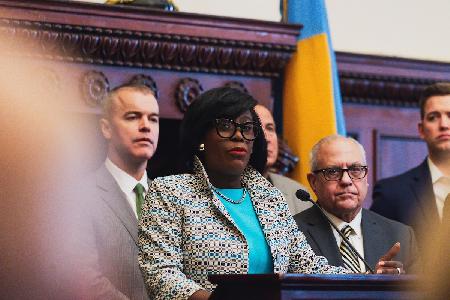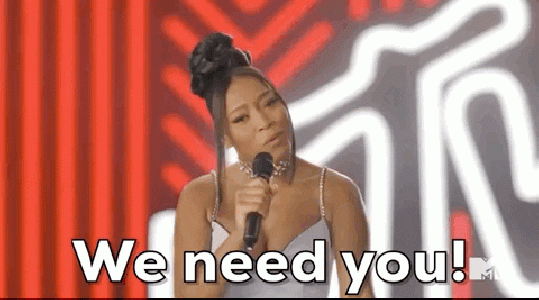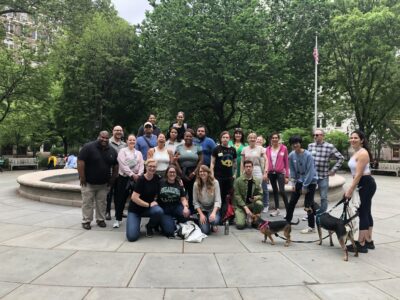“When a commercial project is subjected to artwashing, the work and presence of artists and creative workers is used to add a cursory sheen to a place’s transformation. … By highlighting the new creative uses for inner-city areas, it presents regeneration not through its long-term effects—the transfer of residency from poor to rich—but as a much shorter journey from neglect to creativity.” Feargus O’Sullivan, 2014
A “hater’s” response.
For the past week, right around when creative agency Klip Collective launched its latest art installation at the former Bok Technical High School, I have been trying to understand what I am really mad about when Bok’s reinvention crosses my ears and eyes.
I was one of the many who had questions for Scout, the real estate developers who announced in 2014 that they would turn Bok into a massive creative space. Last fall, I tried to make sense of it in a blog post. One that not only exposed their “artwashing” actions, but also the larger trend of creative placemaking in Philadelphia and its role in urban gentrification.
Scout managing partner Lindsey Scannapieco’s team are made up of good people. But maybe that’s my issue. It’s too easy to be considered a good person in a world where we know increasingly ugly things are happening. Where we know increasingly ugly things are forgotten. Where we find increasingly ugly things are dismissed.
In this process, good people find opportunity (and often, support from those in power) to reimagine deep histories for shallow, surface, pop-up allure because reinventing and repurposing is what keeps us afloat amidst the oceanic abyss of poverty, violence and injustice.
Under the veil, this serves a clear purpose: We must quickly do away with the feelings of anxiety, guilt, disgust and fear that haunt good people when reminded of yesterday’s persisting failures.
###
My mother was a public school teacher in the perpetually troubled Chester-Upland School District. She instilled in me a love for learning and a zeal for working within community. Success in my home was never to be defined in an individual sense, but rather the spillover effects that one’s labor of love could offer the family and community surrounding them.
My inheritance of her love for learning would sustain me through the needle’s eye of opportunity that is (and remains) available in Chester. I persevered well enough through the failed state education policy interventions at Chester High School to be bestowed a diversity scholarship to attend the nationally-recognized Villanova School of Business.
When the Bok team dabbles in the language of the 'forgotten' and 'discarded,' they must take into consideration that many are still grieving.
There, I was first introduced to the idea of “social entrepreneurship.” The concept of socially responsible business offered as an altruistic act of generosity was a cheap lament far from the proverbs that my momma had left me. I understood that working on behalf of was a distant cry from being with and for. My momma would say that your life was never about you in the first place, but your ability to live up to ideas outside yourself (“God’s work,” she’d say): community, reciprocity, love.
This tension has never left me. Chester taught us that I am because we are. Chester taught us that we would be judged not only on the merits of our individual lives, but on how we offered counsel to those within our midst as they confronted their struggles. Because our fates are linked.
Chester taught us that collective purpose was our legacy to uphold. When more than 20 schools are shuttered across Philadelphia, a majority of those schools serving Black and Brown families, I have to take heed to what message that sends throughout the neighborhood. I don’t find there to be any honor or anything to save from that act and continued message of closed opportunity. I brokenheartedly know too many lives that have been squandered and/or lost due to their self-recognition of the unlivable destiny that society has set forth for them.
When the Bok team and others of the growing and needed Philadelphia creative sector dabble in the language of the “forgotten” and “discarded,” they must take into consideration that many are still grieving, still wounded by the erasing public promise of quality education.
Narratives of a golden past serve as a reminder of stolen futures.
South Philly’s now-shuttered Bok Technical School. (Photo via Next City)
“I hear the storm. They talk to me about progress, about ‘achievements;’ diseases cured, improved standards of living. I am talking about societies drained of their essence, cultures trampled underfoot, institutions undermined, lands confiscated, religions smashed, magnificent artistic creations destroyed, extraordinary possibilities wiped out.” Aimé Cesaire, 1955
In my practice as an education entrepreneur, I attempt to keep a steady diet of critical inquiry gleaned from the practices of social justice movements to keep my work honest and what I feel to be in line with my mother’s blessing from above. Particularly for those whose work accentuates the community-minded and forward-looking, I believe them to be of critical importance. Questions like:
- Are we, across the organization, acutely aware of the suffering, both historical and current, that our work seeks to respond? Am I aware of how my past and present labor, decisions and ignorances may contribute to this problem? How is this info public-facing for those around us to self-assess?
- How might our project work obscure, or be made to obscure, structural injustices that led to this current opportunity? How are we publicly pointing towards the interconnectedness of this issue with other issues, simultaneously local, regional, national, global?
- How can we leverage resources to ensure dialogue and action centers on the necessity of structural changes to address those populations left vulnerable due to the imbalance or failure that we have recognized? How are we planning towards our eventual obsolescence?
- How does my project continue to recognize and invest resources in the marginalized communities’ capacities and skills to struggle toward systemic change? How are we uplifting their voice in our current approach?
This response is not centrally about the merits of Bok’s reinvention or whether South Philly can sustain a 216,000-square-foot creative hub within a very recently disinvested and shuttered Philadelphia public school. Nor is it seeking to condemn folks who with all their greatest intentions are attempting to make the best out of a terrible situation.
In my clearest understanding, I know that no individual supersedes the whole and we must keep our minds aimed towards collectively reorganizing the systems that leave many Philadelphians exposed to various vulnerabilities and striving to make a life in spite of imposed precarity.
I hope this response can be useful in exposing the “rise of the creative class” in Philadelphia and centrally about us all never forgetting that we exist within a shared death-dealing situation; its mechanics and effects are still very much so present and in need of much more than a singular solution. Creatives — both lifelong neighborhood residents and newly-minted transplants — must recognize that we all are within a struggle between Philadelphia populations we deem as deserving of investment and those we curse as disposable.
I beg of you that this is everybody’s problem, and that those who have been privileged by this unnecessary violence hold great leverage in its dismantling. This is about recognizing that there is no neutrality in reuse and redevelopment or any creative enterprise. This is about the construction of an ecosystem of transparency amongst those searching to live, love and work in Philadelphia.
Join the conversation!
Find news, events, jobs and people who share your interests on Technical.ly's open community Slack

Philly’s IT department fires long-tenured staff amid a high-level shakeup of priorities

Why is it so hard to find entry-level software engineering jobs?

This Week in Jobs: Get out there with 22 new job opportunities available to you!


